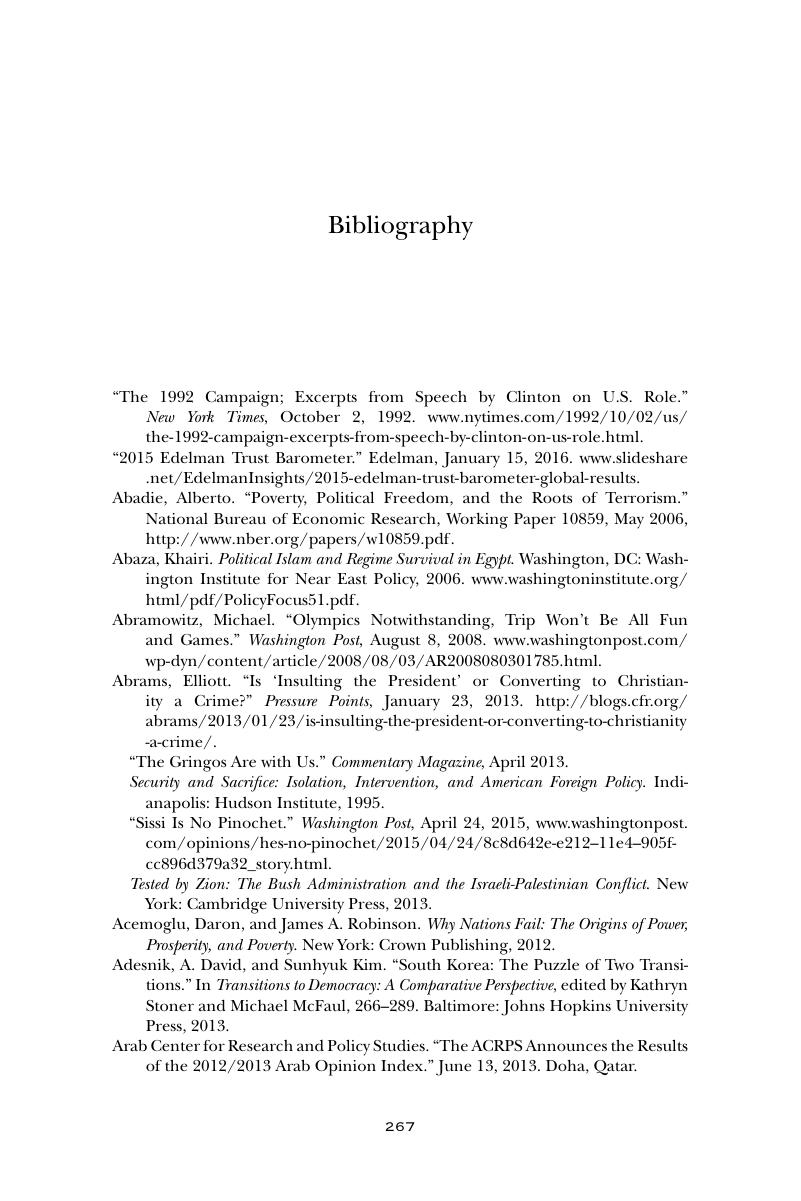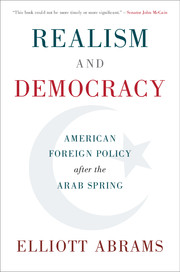Book contents
- Advance Praise for Realism and Democracy
- Realism and Democracy
- Realism and Democracy
- Copyright page
- Dedication
- Epigraph
- Contents
- Preface
- Acknowledgments
- Introduction Forty Years of Human Rights Policy
- Chapter 1 The Arab Spring
- Chapter 2 Arab and Muslim Democracy
- Chapter 3 Will the Islamists Always Win?
- Chapter 4 The Trouble with U.S. Policy
- Chapter 5 What Is to Be Done?
- Notes
- Bibliography
- Index
- References
Bibliography
Published online by Cambridge University Press: 30 August 2017
- Advance Praise for Realism and Democracy
- Realism and Democracy
- Realism and Democracy
- Copyright page
- Dedication
- Epigraph
- Contents
- Preface
- Acknowledgments
- Introduction Forty Years of Human Rights Policy
- Chapter 1 The Arab Spring
- Chapter 2 Arab and Muslim Democracy
- Chapter 3 Will the Islamists Always Win?
- Chapter 4 The Trouble with U.S. Policy
- Chapter 5 What Is to Be Done?
- Notes
- Bibliography
- Index
- References
Summary

- Type
- Chapter
- Information
- Realism and DemocracyAmerican Foreign Policy after the Arab Spring, pp. 267 - 284Publisher: Cambridge University PressPrint publication year: 2017



